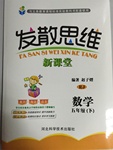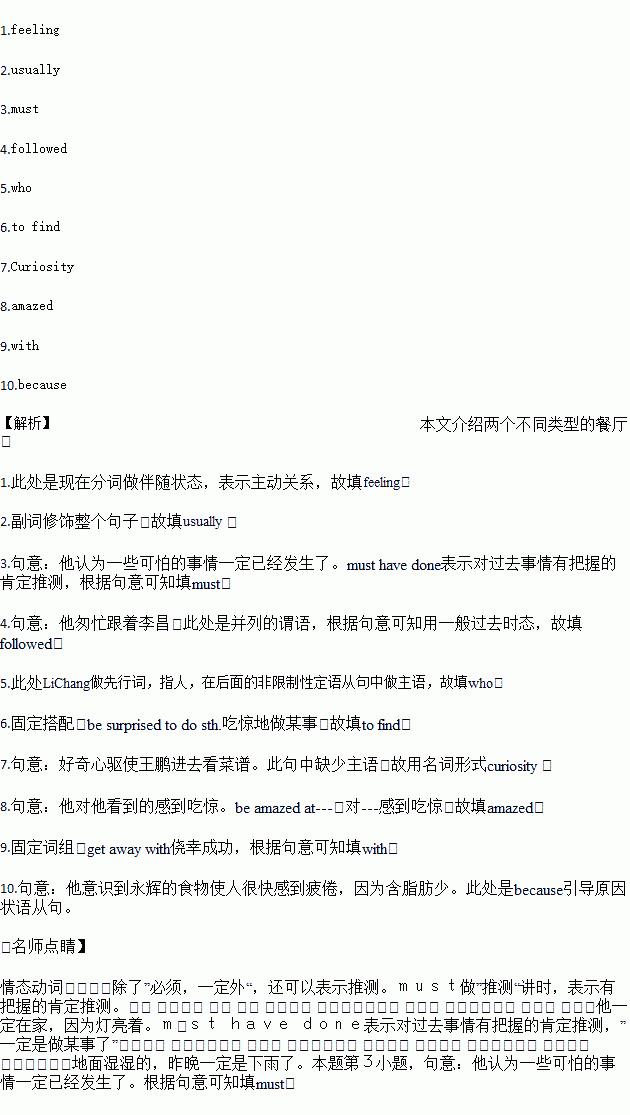题目内容
Wang Peng sat in his empty restaurant 1. (feel) frustrated because no customers had come to his restaurant ever since he got up early in the morning. What was the matter? His restaurant should be full of people 2. (usual) by now. He thought something terrible 3. have happened and he wanted to find out why. He hurried out and 4. (follow) Li Chang, 5. was one of his regular customers, into a newly-opened restaurant. He was surprised 6. (find) that the owner named Yong Hui was serving slimming foods to make people thin. 7. (curious) drove Wang Peng inside to take a close look at the menu. He was 8. (amaze) at what he saw. He couldn’t have Yong Hui getting away 9. telling people lies, so he went to the library to do some research. After a lot of reading, he realized that Yong Hui’s food would make people become tired quickly 10. it had far too little fat. Arriving home, Wang Peng made a new sign. The competition between the two restaurants was on!
 发散思维新课堂系列答案
发散思维新课堂系列答案
